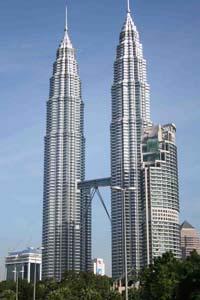Petronas bids for BC gas

Petronas, one of Asia’s top and most controversial energy companies has made a bid to control British Columbia’s large natural gas resource.
Last week, the Malaysian state owned Oil Company offered to buy out its North American joint venture partner with a $4.7 billion dollar takeover bid for Progress Energy Resources Corp.
If accepted it will give them control of huge shale gas reserves in British Columbia’s Montney tight gas region, and Alberta’s Deep Basin, which it can then ship across to the lucrative Asian markets.
Petronas, Malaysia largest taxpayer was recently ranked as Hay Group's Asia's Top 10 Best Companies for leadership.
However, it has also been cited by Amnesty International and other Human Rights advocates for alleged violations in Burma, Sudan, Iran and elsewhere.
Resource analysts said that to coincide with the takeover, and help transport natural gas to Asia, where it can fetch a much higher price than in North America, Petronas plans to build a LNG plant at Prince Rupert, British Columbia, on Canada’s West Coast.
The plant, which will start operating in 2018, will have a processing capacity of 1.2 billion cubic feet of natural gas a day and be directly supplied, via new pipelines, from gas fields in Northeast British Columbia.
Meanwhile, reports out of Kuala Lumpur said Petronas is tired of being Malaysia's cash trough. Its growing pique at the government flared into public view in early June at the World Gas Conference.
Petronas is Malaysia's largest single taxpayer and biggest source of revenue, covering as much as 45 per cent of the government's budget. Unlike other oil-rich nations such as Saudi Arabia, Norway or Brazil, Malaysia runs chronic, large budget deficits that have expanded even as oil revenues increased. Last year's fiscal gap, at 5 per cent of gross domestic product, trailed only India's for the dubious distinction of biggest in emerging Asia, and it may widen this year, said one report.
Meanwhile, India is hoping that Canada can ease its gas pains saying the possibility of tie-ups in the energy sector, mainly hydrocarbon, will help the South Asian economy.
At a “pull-aside” meeting between Prime Minister Manmohan Singh and Stephen Harper on the sidelines of the recent G-20 summit in Mexico, a more comprehensive partnership going beyond Canada’s major role in ensuring food security was discussed, said government sources, according to one media report.
Leave a comment









